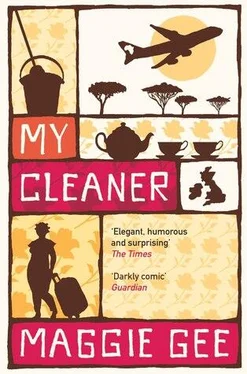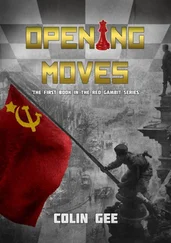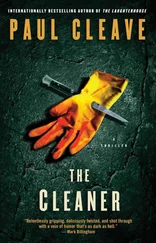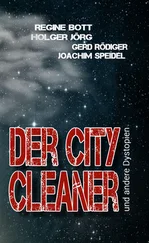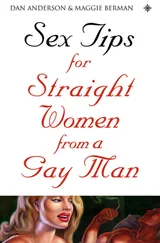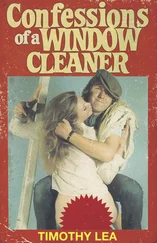But Mary tells her it is time for them to meet. Mary seems enviably confident. Zakira is impressed with her. She does not quite believe all that Mary says, about writing The Life of Mary Tendo; Justin has not mentioned that Mary is a writer, and nannies do not usually write their lives, and besides, Mary seems — very African, somehow — in most ways, very different from Zakira…
On the other hand, there is something about Mary, an energy and hopefulness Zakira has lost over the lonely spring and summer months of being pregnant, saying nothing to people at her old workplace in case they rejoiced that she had messed things up, and nothing to her family, and nothing to Justin, while thinking, at first, “I shall have an abortion,” and later, when she found she had left it too late as a way of never making that fatal decision, “A child is coming, what will happen to me?” None of her contemporaries has children. But Mary has a son. She understands.
Zakira’s nervous about meeting Justin’s rude, cold mother. Still, at least the fear makes her feel alive, where an hour ago she was indifferent, moribund, because it seemed that no change was possible, that she would be imprisoned in the cold for ever, imprisoned in her body with its lumbering cargo. No one would visit her and no one would help her, and the big heavy baby would never be born, because out in the world no one waited for him, no-one wanted him except his mother.
Now the knot of fate is going to loosen. Zakira sways along at Mary’s side.
Mary gives Zakira one last warm smile before she slips her key into the door. She leads Zakira into the sitting-room, then goes upstairs to waken Justin.
But he is not there.
The bedroom is empty.
Even more surprising, the bed is made. Mary checks the bathroom, the loo. No one. She comes downstairs and scans the back garden. It doesn’t seem possible, but Justin has gone. (Though she doesn’t remember this until later, she sees Justin’s arrows all over the garden, sticking out of tree-trunks and flowerbeds and fences, the arrows Mary smuggled in from Uganda, pale bamboo arrows with barbed steel heads. Justin has been playing with someone in the garden. His goat-skin quiver lies on the ground.)
She is just relaying the bad news to Zakira when the front door opens, they rise to their feet, their faces alight with nervous excitement — and Vanessa tramps in, looking tired and grim as she does at the end of a day of teaching. She goes straight to the kitchen without noticing them. The tap runs, then she reappears, and is taken aback to see the two of them.
“Good afternoon Miss Henman, Vanessa,” says Mary.
“Ah Mary,” says Vanessa, with a small sigh, and encompasses Zakira with a vague smile. Soon her house will be full of Ugandans. Still, Mary has worked harder since her wages rose: she is washing-up again, and using the vacuum.
“Miss Henman, this is my friend,” starts Mary. “She—”
“From church?” Vanessa says, shaking Zakira’s hand rather cursorily. “Very nice to meet you. Now, Mary, do make your friend tea or coffee. I’m actually exhausted. I shall go and lie down.”
And before either woman can explain herself, she has swept upstairs, clutching a milky glass of aspirin, her lips tight and pale without their coat of crimson, her forehead creased with tiredness, a folder of marking in her other thin hand, together with the letter she has found in the hallway.
The gaps in the house become wider and deeper. They sit there stranded in the shadowy sitting room, surrounded by photographs of strangers, and suddenly they feel what they did not before, two African women in a foreign land.
Mary stares at Vanessa’s African masks, which her employer is particularly proud of, staring out at them from an expanse of pale plaster, dark cicatriced faces with empty eyes. They do not feel like ancestors.
“I do not like them,” she says to Zakira.
“They are ignorant,” says Zakira, regally. She is not talking about the masks. For a moment she feels much closer to Mary. What can it be like, living under this roof? “People like her know nothing about us. And they do not want to get to know us.” And then she pauses, and reflects. “I think they are afraid of us.”
Vanessa lies upstairs on her bed. The aspirin is beginning to work. Down below, she can just hear the quiet murmur of the two women’s voices like a distant river. It isn’t unpleasant. It is comforting. Perhaps she and Justin have grown too self-enclosed. Perhaps it is good to meet new people, though today she had come home completely exhausted.
Vanessa’s class today was a near-riot. She had asked the new intake to bring in an object which inspired their writing, and might inspire others. Usually people bring photographs, maybe ferns or shells, a stone or a feather. But Derrick had turned up with a whole dead pigeon, and two of the girls became hysterical, one because she said all pigeons had fleas (though it was a soft, pink, plump-looking thing) and the other because she suspected he had killed it. This girl, Daisy, who came from Devon, wore long hippyish clothes that were tight over her breasts, and had big, fixed eyes, rather slow and moon-like. She very often seemed to quarrel with Derrick. Perhaps she was attracted to him. Daisy had brought along a photo of her cat, which was white and fat and soft and sleepy. “You like to kill things,” Daisy shouted at him. “We don’t want to see your victims.”
“It died of old age,” Derrick insisted. But there were two small marks on the back of its neck which looked suspiciously like airgun pellets.
Derrick became defiant and articulate. As the girls shrank away, he pushed the pigeon towards him, so it sat in the middle of the long table, almost living as its flesh-coloured feathers slowly settled, beautifully soft, from pink to pearl, a thing of wonder in its intricate detail. Vanessa started to imagine an odour, a sort of sweet-savoury, menstrual smell, but it could equally well have come from the girls. Her classes were usually a moil of hormones. Derrick had a loud, rather toneless voice, which allowed him to dominate the room, though this time he had a lot of competition. “Salvador Dali threw a cow from a plane. You probably don’t even know who Dali is. If that was art, tell me why my pigeon isn’t?”
Soon everybody was shouting at once and Vanessa had to bang the green marker on the whiteboard, but before they fell silent, she heard Derrick demand, “You tell me what is interesting about your fat pussy?” Whereupon half the class collapsed in laughter, while Daisy stood up and burst into tears.
By the time Vanessa had mediated, only forty-five minutes remained for writing, which Daisy insisted was unfair, since “Some people write very fast without thinking,” looking hard at Derrick, who by now was established at his own small table in the corner of the room, where the pigeon would cause least physical violence. So Vanessa had agreed there would be no reading out, and instead she had taken all the writing in, which meant she had doubled her load of marking.
Daisy, of course, was very annoying. But Vanessa had become a little anxious about Derrick, whose scripts, though skilful, were increasingly violent. Perhaps she shouldn’t be encouraging him?
It was very odd, this writing business. Looking quickly, she sees that the best piece comes once again from the infuriating man with the Father Christmas beard, who has written a skit upon this morning’s class, where the teacher is whimsical and ineffectual, and the pigeon is actually crawling with maggots—
But she forgives him, since he has made her beautiful.
Vanessa falls asleep for an hour, and dreams she is writing the book of a lifetime. It spools from her fingers, witty, brilliant. She has written two thirds of the book before breakfast, though Daisy stands there, wailing and pointing, “You went too fast! You killed the pigeon!” She is about to deny it when she looks under the desk and finds she is making love to the boy, whose penis is a fat, pearly-pink pigeon, and she thinks, “This is brilliant, it doesn’t stop me writing! I could have been doing this all these years!” She has almost finished, she is coming, she is there — but when she stands up to take her bow, she finds she is naked below her waist, and sees Justin waiting behind her, staring, hang-dog, heavy, unloved by anyone, jealous of the boy with the thin dark body, and he says, “You see, you forgot about me. It’s all your fault, you forgot about me.”
Читать дальше
